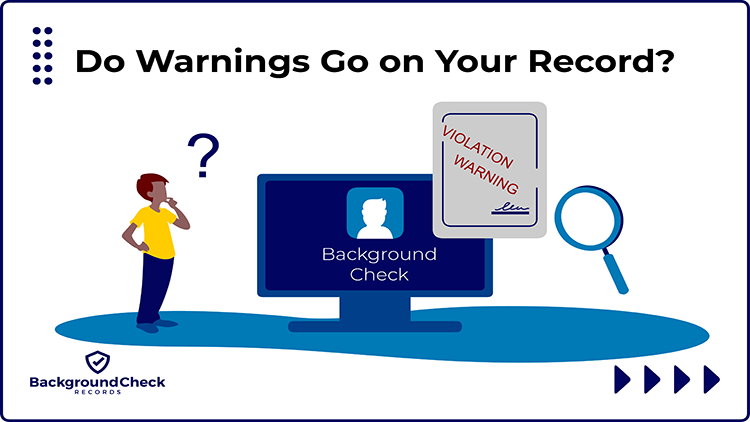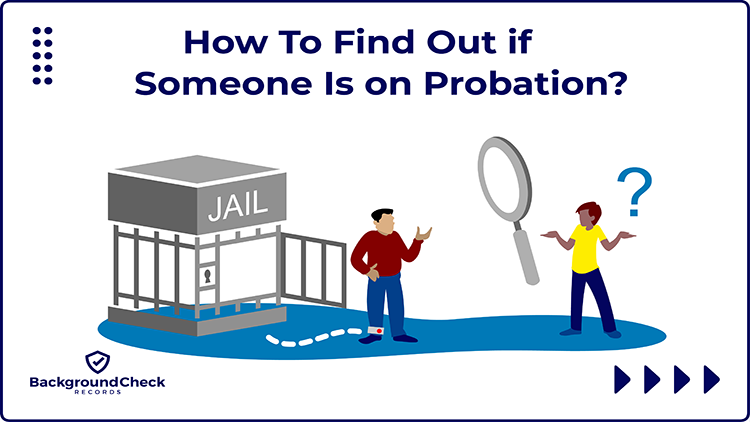We use cookies to ensure that we give you the best experience on our website. If you continue to use this site we will assume that you are happy with it.
Do Pending Charges Show Up On a Background Check? Yes & No
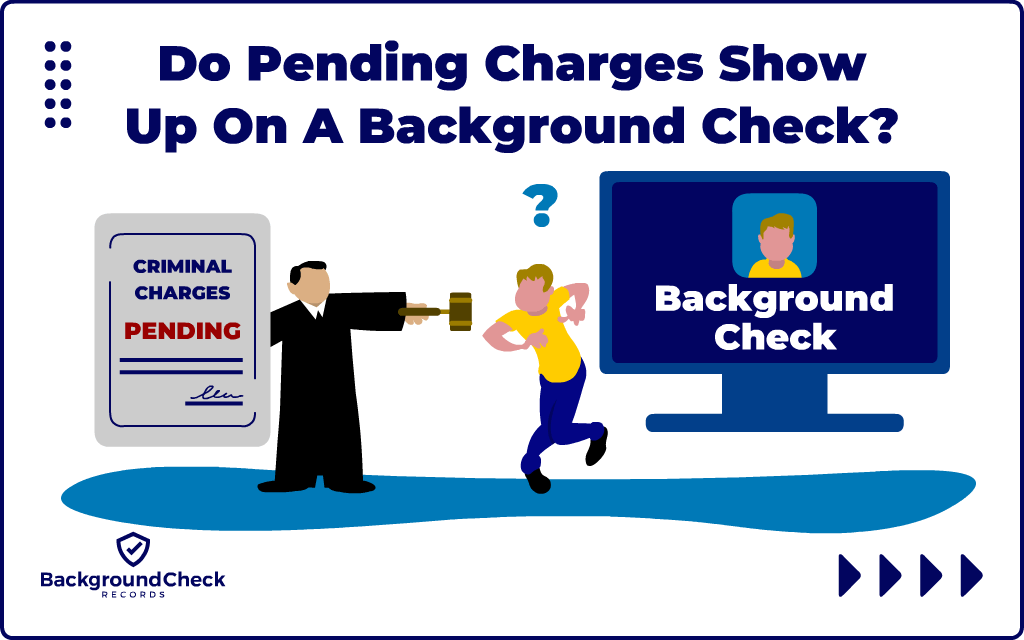
Table of Contents
In various life circumstances, people often wonder whether pending charges are visible in a background check. Generally, pending charges are included in background checks, but there are exceptions where they may not be disclosed.
The only way to understand the reason for this is by looking into how pending charges and non-convictions are reported and how some states implement ban the box laws to discourage preemployment discrimination.
Timing of Pending Charges & Non-Convictions in Background Checks
Background checks show a myriad of information dependent on factors such as the type of background check, the background check provider, and the state in which the background check was run.
A majority of criminal records information collected in a background check is a compilation of public records for an individual.
National and much state-level freedom of information laws give citizens the right to access most government documents and what is not deemed as a public record can typically be included in these reports due to authorization for a background check given by the individual in question.
However, just because most pending charges and non-convictions are public records does not mean they will show up on every background check. Screenings and background checks can be run through a city, county, or state, which will only bring up local records. Therefore, level 1 or name based background checks do not display charges from other states.
Conversely, national background checks might overlook recent charges in specific cities or states. However, understanding methods for locating recent arrests via alternative background check services could reveal these charges that FBI background checks might not include.
The type of information included in a background check is dependent on which type is requested. The included information, although not all exactly the same, will most likely show pending charges.
Level 1, tenant, firearm, employment and level 2 background checks all include criminal records and will, for the most part, show pending charges. Exceptions to this include expunctions for juvenile records, sealed records, and records that are restricted due to ban the box laws.
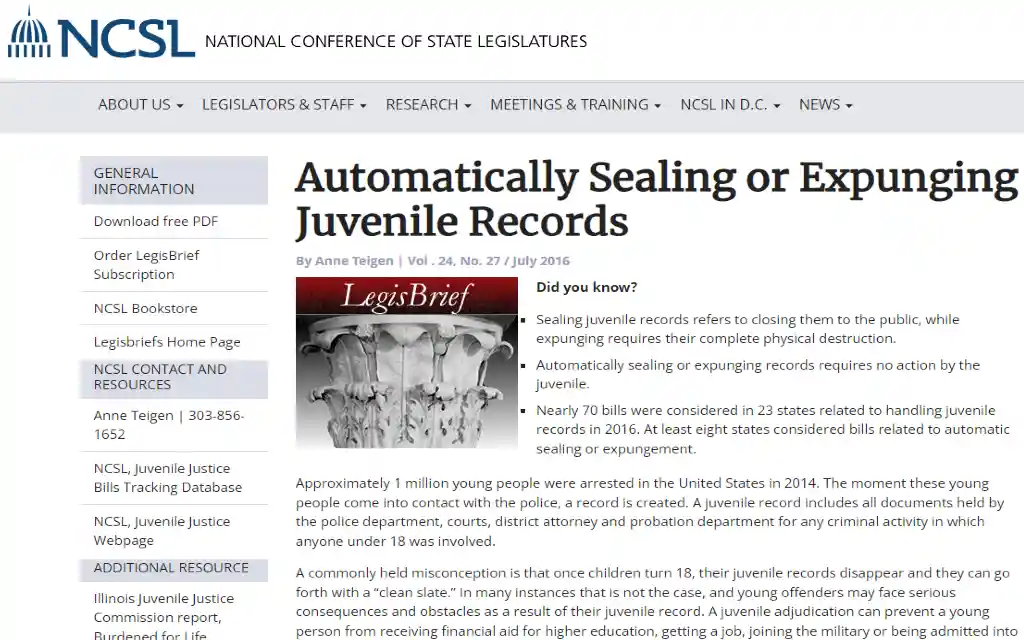
Keep in mind that if a judge seals an event on an individual’s record, that information is no longer a public record and will not show up on a background check. Additionally, once a person turns 18 some states throughout the U.S. will automatically expunge a juvenile’s record. Meaning that most juvenile records can’t be used against someone.
But if the charge was a felony, or if the person commits another crime as an adult, a juvenile’s criminal record can still show up on background checks and be used against them in court proceedings if they’re tried as an adult.1
How Ban The Box Laws Affect Pending Charges & Employment Background Checks
“Ban the box” refers to the box typically seen on an employment application, tenant application, and other licensing applications which asks whether the applicant has a criminal history and the details surrounding that history.
Historically, checking this box disqualified applicants before consideration was made to their qualifications and other experience, regardless of any pending charges or explanation provided.
To reduce discrimination based on criminal history, many municipalities, states, and even federal agencies began implementing a Ban the Box Law which generally prevents employers from asking about or obtaining any criminal history on an employment application.
Some of these laws even prevent employees from basing their hiring decision on certain types of details disclosed on a background check such as non-convictions.
No single Ban the Box law in the country is identical, so employers in each different state have stipulations they must abide by. For instance, public and private employers in the District of Columbia with eleven or more employees must wait to run a background check until a conditional job offer is made.
Louisiana restricts employers, both public and private, from considering non-conviction records in the hiring process.2 Many other states restrict companies and agencies from discriminating based on arrests that did not end up as a conviction.
States Where Pending Charges May Not Show Up on a Background Check
The following states have a version of a ban the box law which may protect against pending charges being revealed on a background check. However, it’s important to note that each law is different and must be examined further to determine if it protects against pending charges or not.
To find out more about each law, a link is provided to the corresponding statute:
- Arizona – Executive Order 2017-07 – The Establishment of Arizona as a Second Chance Employer3
- California – Government Code section 12952 – Fair Chance Act4
- Colorado – Colorado Revised Statutes § 8-2-130 – Chance to Compete Act5
- Connecticut – Public Act Number 16-83 – Fair Chance Act6
- Delaware – House Bill 167 – Delaware Discrimination in Employment Act7
- District of Columbia – Code of the District of Columbia § 32-1341 – Fair Criminal Record Screening Amendment Act of 20148
- Georgia – Official Code of Georgia Annotated §§ 44-19-20 – 45-19-46 – Fair Chance Law9
- Hawaii – Hawaii Bill No 1782 – Ban the Box Law10
- Illinois – Senate Bill 1480 – The Employee Background Fairness Act11
- Kansas – Executive Order 18-12 – Ban the Box Law12
- Kentucky – Executive Order 2017-064 – Fair Chance Act13
- Louisiana – House Bill Number 707 – Fair Chance Law14
- Maine – H.P. 845 – Fair Chance in Employment Act15
- Maryland – Senate Bill 839 – Criminal Record Screening Practices16
- Massachusetts – General Laws § 1-7-4 – Criminal Justice Reform Laws17
- Michigan – Enrolled Senate Bill Number 353 – Ban the Box Law18
- Minnesota – Minnesota Statutes § 364.021 – Ban the Box Law19
- Missouri – Executive Order 16-04 – Ban the Box Law20
- Nebraska – Nebraska Revised Statute § 48-202 – Ban the Box Law21
- Nevada – Assembly Bill Number 384 – Ban the Box Law22
- New Hampshire – House Bill 253 – Ban the Box Law23
- New Jersey – New Jersey Amended Statutes § 34:6B-11– The Opportunity to Compete Act24
- New Mexico – Senate Bill 120 – Criminal Offender Employment Act25
- New York – Article 23-A of the Correction Law – Fair Chance Act26
- North Carolina – Executive Order Number 158 – Fair Chance Policy27
- North Dakota – House Bill Number 1282 – Ban the Box Law28
- Ohio – House Bill Number 56 – Fair Hiring Act29
- Oklahoma – Executive Order 2016-03 – Ban the Box Law30
- Oregon – Bill 659A.360 – Ban the Box Law31
- Pennsylvania – Human Resources Policy HR-TM001 – Fair-Chance Hiring32
- Rhode Island – Rhode Island General Laws § 28-5-7 – Fair Employment Practices34
- Tennessee – State Bill 2440 – Ban the Box Law [34]
- Utah – House Bill 34-52-101 – Ban the Box Law35
- Vermont – Vermont Amended Statutes § 495j – Fair Employment Practices36
- Virginia – Code of Virginia § 19.2-389.3 – Ban the Box Law37
- Washington – RCW 49.94.010 – Fair Chance Act38
- Wisconsin – 2015 Assembly Bill 373 – Ban the Box Law39
Do Pending Misdemeanors, Felonies or Infractions Show Up on Criminal Background Checks?
Pending charges can show up on a background check but it depends on the type of background check being conducted, state laws, and the type of charge such as a felony, misdemeanor or infraction – pending charges or not, background checks show out of state charges if it’s a fingerprint background check, not name based.
If the pending charge originated within the state the background check is being performed, it’s important to know the differences between infractions, misdemeanors, and felonies to determine if it will come up.
An infraction is a civil offense, such as a speeding ticket or a noise ordinance citation. On the other hand, a misdemeanor is a criminal offense that holds the possibility of jail time, but no prison time.
It is important to know the difference between infractions, misdemeanors, and felonies; especially in regard to criminal background checks and pending charges. An infraction is a civil offense, such as a speeding ticket or a noise ordinance citation. A misdemeanor is a criminal offense that holds the possibility of jail time, but no prison time.
Examples of misdemeanors are driving while intoxicated and shoplifting (under a certain monetary value). Lastly, a felony, which is the most serious, has a penalty of prison time and includes offenses such as arson, larceny (over a certain monetary value), and assault with a weapon.40
Infractions, whether pending or processed, will not show on a criminal background check. It is important to note that infractions may show up on a general background check or a motor vehicle background check.
On the other hand, pending felonies and misdemeanors are likely shown on a criminal background check in a majority of states. There are exceptions, such as Illinois, which only allows criminal convictions to be released in a background check.41
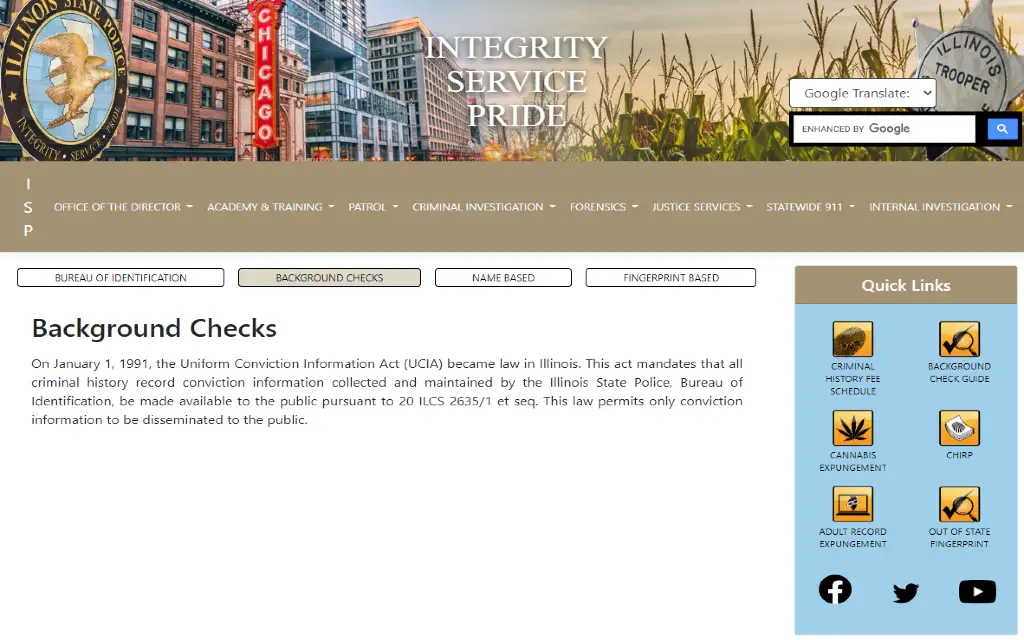
As mentioned earlier, any felony or misdemeanor that has been expunged will not show up on a background check. Expunged records are private information and are not required to be disclosed. Sealed records, as well, do not have to be disclosed. The information contained in sealed records is private and can only be released by a judge.
A majority of employer-requested criminal background checks, as well as some other background checks, go back seven years. This timeframe does not govern every situation but is a standard that is set forth in the Fair Credit Reporting Act.
In certain settings, if a prospective employee would be making above a certain pay range or their position would hold an elevated title, a criminal background check may go back further than seven years. 42
Do Pending Charges Come Up on Background Checks Right After the Incident?
The timeframe for pending charges to show up on a background check varies. A criminal background check pulled directly from the city or county where an arrest was made will likely show pending charges within hours or days.
However, a state or private background check company may not be up-to-date due to the numerous agencies they must obtain and verify their information through.43
Are Pending Court Cases on Most Types of Background Checks?
Federal law and many state laws have deemed pending and settled criminal and civil court cases as public records. Civil court cases, such as custody cases or contract dispute cases, are not included in a typical background check. While pending criminal cases are part of an individual’s criminal history, and unless sealed or otherwise restricted by the state, are included in most background checks.
Just as with pending charges, pending criminal cases might not show up on a background check in a timely manner. There are many courthouses throughout the nation handling criminal cases and information is only as accurate as what is reported. It may take a significant amount of time to record data from a small courthouse in a rural county due to restrictions on technology and manpower.
How to Land a Job With Pending Charges
It can be difficult to navigate job hunting with pending charges, but local and state governments, along with the federal government, have made a concerted effort within the last decade to lessen the stigma that could come along with pending charges and the discrimination that comes with it.
When searching for employment, being prepared for the application and hiring process, especially if there is concern regarding pending charges on a background report, is vital. Before applying for a job:
- Perform a personal background check to ensure there are no errors and to gain awareness of what an employer, leasing manager, or licensing agency will see.
- If negative information does present itself, consider hiring an attorney to work toward sealing or expunging the records.
- Gain familiarity with the local ban-the-box laws that govern employees in the area where the job search is being performed.
- If pending charges or other negative details will ultimately be revealed to a potential employer, being honest early on can show integrity and willingness to grow.
- Provide a thought-out and detailed explanation of why the past occurrence will have no impact on future job performance.
- Be prepared with references that can serve as a character witness if an event from a background check is called into question.
- Don’t assume that if one employer rejects an application, that all will. Perseverance, with the help of laws that reduce discrimination, should help anyone land a job.
When determining if pending charges show up on a background check or not, an understanding of certain statutes can provide insight on the protections surrounding criminal record discrimination.
References
1 Teigen, A. (n.d.). Automatically Sealing or Expunging Juvenile Records. National Conference of State Legislatures. Retrieved July 9, 2022, from <https://www.ncsl.org/research/civil-and-criminal-justice/automatically-sealing-or-expunging-juvenile-records.aspx>
2 50-State Comparison: Limits on Use of Criminal Record in Employment, Licensing & Housing. (n.d.). Collateral Consequences Resource Center. Retrieved July 9, 2022, from <https://ccresourcecenter.org/state-restoration-profiles/50-state-comparisoncomparison-of-criminal-records-in-licensing-and-employment/>
3 Untitled. (n.d.). Governor Ducey. Retrieved July 9, 2022, from <https://azgovernor.gov/sites/default/files/boxeo_0.pdf>
4 (2013, November 15). YouTube. Retrieved July 9, 2022, from <https://leginfo.legislature.ca.gov/faces/codes_displaySection.xhtml?sectionNum=12952&lawCode=GOV>
5 HOUSE BILL 19-1025 BY REPRESENTATIVE(S) Melton and Herod, Arndt, Benavidez, Buckner, Coleman, Duran, Esgar, Exum, Froelich, Gali. (n.d.). Colorado General Assembly |. Retrieved July 9, 2022, from <https://leg.colorado.gov/sites/default/files/2019a_1025_signed.pdf>
6 AN ACT CONCERNING FAIR CHANCE EMPLOYMENT. (n.d.). Connecticut General Assembly. Retrieved July 9, 2022, from <https://www.cga.ct.gov/2016/ACT/pa/2016PA-00083-R00HB-05237-PA.htm>
7 Bill Detail. (2013, May 30). Bill Detail – Delaware General Assembly. Retrieved July 9, 2022, from <https://legis.delaware.gov/BillDetail/23201>
8 Subchapter I. Fair Criminal Record Screening. (n.d.). DC Law Library. Retrieved July 9, 2022, from <https://code.dccouncil.us/us/dc/council/code/titles/32/chapters/13B/subchapters/I/>
9 (2013, November 15). YouTube. Retrieved July 9, 2022, from <https://advance.lexis.com/container>
10 HB1782. (n.d.). Hawaii State Legislature. Retrieved July 9, 2022, from <https://www.capitol.hawaii.gov/session2020/bills/HB1782_.HTM>
11 (2013, November 15). YouTube. Retrieved July 9, 2022, from <https://ilga.gov/legislation/fulltext.asp>
12 (2013, November 15). YouTube. Retrieved July 9, 2022, from <https://admin.ks.gov/media/cms/afca24d8-324f-4a13-acad-c35aaaba82a7.pdf>
13 (2013, November 15). YouTube. Retrieved July 9, 2022, from <https://www.nelp.org/wp-content/uploads/Kentucky-Executive-Order.pdf>
14 WILLARD, R., & CARTER, G. (n.d.). ACT No. 406. Louisiana State Legislature. Retrieved July 9, 2022, from <https://www.legis.la.gov/legis/ViewDocument.aspx?d=1235804>
15 130th MAINE LEGISLATURE. (n.d.). Maine Legislature. Retrieved July 9, 2022, from <http://www.mainelegislature.org/legis/bills/getPDF.asp?paper=HP0845&item=1&snum=130>
16 Bill Text: MD SB839 | 2019 | Regular Session | Enrolled. (n.d.). LegiScan. Retrieved July 9, 2022, from <https://legiscan.com/MD/text/SB839/id/1987057>
17 Session Law – Acts of 2018 Chapter 69. (n.d.). Massachusetts Legislature. Retrieved July 9, 2022, from <https://malegislature.gov/Laws/SessionLaws/Acts/2018/Chapter69>
18 (2013, November 15). YouTube. Retrieved July 9, 2022, from <https://www.legislature.mi.gov/documents/2017-2018/publicact/htm/2018-PA-0084.html>
19 Sec. 364.021 MN Statutes. (n.d.). MN Revisor’s Office. Retrieved July 9, 2022, from <https://www.revisor.mn.gov/statutes/cite/364.021>
20 Governor’s Executive Order 16-04. (n.d.). Missouri Secretary of State. Retrieved July 9, 2022, from <https://www.sos.mo.gov/library/reference/orders/2016/eo4>
21 Nebraska Legislature. (n.d.). Retrieved July 1, 2022, from <https://nebraskalegislature.gov/laws/statutes.php?statute=48-202>
22 (2013, November 15). YouTube. Retrieved July 9, 2022, from <https://www.leg.state.nv.us/Session/79th2017/Bills/Amendments/A_AB384_364.pdf>
23 Sununu, G. (2020, January 30). Bill Text: NH HB253 | 2020 | Regular Session | Amended. LegiScan. Retrieved July 9, 2022, from <https://legiscan.com/NH/text/HB253/id/2117589>
24 (n.d.). CHAPTER 32 AN ACT concerning certain employment rights of persons with criminal records and supplementing Title 34 of the Revise. Retrieved July 9, 2022, from <https://www.state.nj.us/corrections/pdf/OTS/FRARA/OtherResources/Opportunity%20to%20Compete%20Law.PDF>
25 O’Neill, B. B. (n.d.). 52ND LEGISLATURE – STATE OF NEW MEXICO -. 52ND LEGISLATURE – STATE OF NEW MEXICO -. Retrieved July 9, 2022, from <https://www.nmlegis.gov/Sessions/15%20regular/bills/senate/SB0120.PDF>
26 Legislation | NY State Senate. (n.d.). Legislation | NY State Senate. Retrieved July 9, 2022, from <https://www.nysenate.gov/legislation/laws/COR/A23-A>
27 (2013, November 15). YouTube. Retrieved July 9, 2022, from <https://governor.nc.gov/media/2020/open>
28 (2013, November 15). YouTube. Retrieved July 9, 2022, from <https://www.nelp.org/wp-content/uploads/North-Dakota-HB-1282-2019.pdf>
29 (2013, November 15). YouTube. Retrieved July 9, 2022, from <https://search-prod.lis.state.oh.us/solarapi/v1/general_assembly_131/bills/hb56/EN/05/hb56_05_EN?format=pdf>
30 Executive Order 2016-03. (n.d.). sos.ok.gov. Retrieved July 9, 2022, from <https://www.sos.ok.gov/documents/executive/1023.pdf>
31 Chapter 659A — Unlawful Discrimination in Employment, Public Accommodations and Real Property Transactions; Administrative and Civil Enforcement. (n.d.). Oregon State Legislature. Retrieved July 9, 2022, from <https://www.oregonlegislature.gov/bills_laws/ors/ors659A.html>
32 HR-TM001 Fair-Chance Hiring. (2017, May 15). OA.PA.GOV. Retrieved July 9, 2022, from <https://www.oa.pa.gov/Policies/hr/Documents/TM001.pdf>
33 (n.d.). Chapter 5 Fair Employment Practices. Retrieved July 9, 2022, from <http://webserver.rilin.state.ri.us/Statutes/title28/28-5/28-5-7.HTM>
34 Tennessee General Assembly Legislation. (n.d.). Tennessee General Assembly Legislation. Retrieved July 9, 2022, from <https://wapp.capitol.tn.gov/apps/BillInfo/default.aspx?BillNumber=SB2440&GA=109>
35 HB0156. (n.d.). Utah Legislature. Retrieved July 9, 2022, from <https://le.utah.gov/~2017/bills/static/hb0156.html>
36 Vermont Laws. (n.d.). Vermont Laws. Retrieved July 9, 2022, from <https://legislature.vermont.gov/statutes/section/21/005/00495j>
37 § 19.2-389.3. (For contingent effective date see Acts 2021, Sp. Sess. I, cc. 524, 542, 550, and 551) Marijuana possession; limits on dissemination of criminal history record information; prohibited practices by employers, educational institutions, and stat. (n.d.). Virginia Law. Retrieved July 9, 2022, from <https://law.lis.virginia.gov/vacode/title19.2/chapter23/section19.2-389.3/>
38 RCW 49.94.010: Inquiries about criminal records—Timing—Advertisements—Exceptions. (n.d.). Access Washington. Retrieved July 9, 2022, from <https://app.leg.wa.gov/RCW/default.aspx?cite=49.94.010>
39 Wisconsin Legislature: AB373: Bill Text. (2015, October 7). Wisconsin Legislative Documents. Retrieved July 9, 2022, from <https://docs.legis.wisconsin.gov/2015/related/proposals/ab373>
40 Barabino, W. (2017, April 4). Differences Between Civil Infractions, Misdemeanors, and Felonies? – Law Office of William J. Barabino. William Barabino. Retrieved July 9, 2022, from <https://www.williambarabino.com/blog/2017/04/04/difference-civil-infractions-misdemeanors-felonies/>
41 Bureau of Identification. (n.d.). Bureau of Identification. Retrieved July 9, 2022, from <https://isp.illinois.gov/BureauOfIdentification/BackgroundChecks>
42 Fair Credit Reporting Act – Revised September 2018. (n.d.). Federal Trade Commission. Retrieved July 9, 2022, from <https://www.ftc.gov/system/files/documents/statutes/fair-credit-reporting-act/545a_fair-credit-reporting-act-0918.pdf>
43 Neudecker, K. (2021, September 2). Job Seekers: Make sure you know these vital tips to ensure your background check is accurate. Fast Company. Retrieved July 9, 2022, from <https://www.fastcompany.com/90671452/jobseekers-make-sure-you-know-these-vital-tips-to-ensure-your-background-check-is-accurate>

